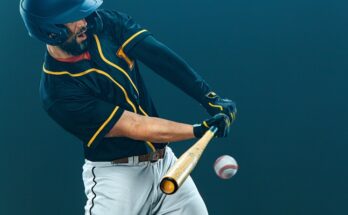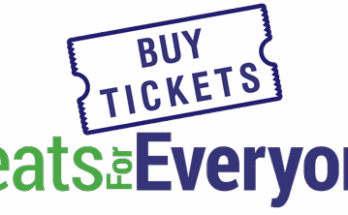I Really Hope This All Works
But the moment had already been soured. Hours before the first game of their season, Nationals wunderkind Juan Soto was announced to have tested positive for the coronavirus, forcing him to miss the season-opener and enter self-isolation. In addition to being scary news for Soto — who is asymptomatic — it also served as one more reminder of the dangers MLB faces as it attempts to play a season in the middle of a pandemic, and the complicated moral quandaries fans of the sport will struggle with as long as that season goes on.
Wednesday — Works out at Nationals Park
Thursday — Receives positive test result for Tuesday test
That is four full days between giving a saliva sample that tested negative and receiving a positive result.
— Jesse Dougherty (@dougherty_jesse) July 23, 2020
Not that we needed the reminder in the first place. For four months, we’ve been absorbing as much information as possible about the virus, its potentially deadly effects, and its insidious spread through asymptomatic carriers; about the difficult ethical debates it created; about the lost jobs and the likely permanent damage dealt to already vulnerable industries and communities; about the potentially devastating hurdles and pitfalls that lurk within the return plans of various leagues; and, of course, since this is pro sports, about whether all of this might be rendered moot by the greed of ownership. After all of that, there was hope MLB’s return would be the escape we’ve all anxiously waited for. Instead, it has become its own source of anxiety — a profoundly risky gamble with thousands of lives in the balance, in which we root less for teams and players and more for the simple wish that nothing terrible happens.
Prior to Soto’s results, MLB had carefully been building what could charitably be considered momentum as it edged toward the start of the season. After the testing protocols critical to the safe execution of the season immediately revealed themselves to be wanting the first weekend of camp, the process seemed to have been smoothed out in the weeks since. The positive test totals have remained lower than expected, the vast majority of those who have tested positive have been asymptomatic, and Braves first baseman Freddie Freeman, the only player who has publicly reported experiencing severe symptoms after contracting the virus, is back on the field, even as a deal with potential teammate Yasiel Puig fell through after the outfielder tested positive for COVID-19. All of these things have largely been seen as positive developments, and have nudged many of us toward believing this might actually be okay.
It’s less accurate to say any of that is good news, though, than it is to say there was less bad news than we were expecting. There’s a difference there, and it’s part of the calculus that the return of sports in the middle of a pandemic has forced upon fans. Now that baseball is officially here, the conversation shifts from what must happen in order for the season to begin to what would need to transpire for it to be stopped. How many people would need to get sick, and how soon? How sick would they have to be? Right now, MLB’s plan works as long as no one becomes severely ill as a direct result of their participation in the season, and if the communities they operate in aren’t being deprived of resources. But as time goes on, the goalposts seem likely to move.
It feels extraordinarily uncomfortable to be a regular person trying to run through these mental gymnastics — to decide what number of infections is “a good thing, actually,” or how sick someone needs to get as a result of doing their job before we question whether the job is worth doing at all right now. In a sane world, we wouldn’t be asked to make that call for ourselves. We would either be under the influence of leaders bold enough to take necessary action to protect their citizens, or trustworthy enough that when they say something is safe, we believe them. Instead, we are on our own. MLB’s return is another thing we see on our screens that makes our stomachs ache, like when a friend posts photos of themselves at a crowded bar or a loved one shares some anti-mask conspiracy theory on Facebook — it might make you angry, but it also just makes you feel helpless, wishing over and over again for nothing terrible to happen.
And if I sound like I’m condemning the effort to play the season before it really gets underway, I assure you that I badly, badly want this to succeed. If you work in baseball media like I do, you’ve probably spent the last few months wondering what the hell was going to happen to you if there wasn’t a season. For many people, a scrapped 2020 would mean the loss of their paycheck and their health insurance. Beyond that, the vast majority of players seem to really want to play. They like being able to do their jobs and support their families. They know that to be a professional athlete is to fight against time, trying to accomplish as much as possible in the small window of years you are able to wear an major league uniform. As evidenced by their continued insistence on more game during the negotiations to resume play, they aren’t interested in giving a season away; they’re willing to do their part to ensure it’s safe enough to play. There is an argument to be made that they deserve that chance.
And in a comparatively frivolous sense, the loss of baseball for a year would mean the loss of… baseball! For a whole damn year! With a shortened 2020, Mike Trout still gets part of a prime season to bolster his career stat line. The Reds, the team I grew up rooting for, might not have 13 months of aggressive, fun moves go directly into the toilet. We won’t have to wait until 2021 to see the likes of Luis Robert, Nate Pearson, Nick Madrigal, and other exciting prospects make their major league debuts. We’ll get baseball on our TVs, from early afternoon Cubs games to late night west coast tilts. And we’ll get stories to tell and highlights to stare at and maybe even an honest-to-god World Series.
There are so many reasons to celebrate and rejoice over the 2020 season finally starting, for real, for all of us to see, that it feels even more disappointing that it can’t mean more. At the start of camp, Sean Doolittle told reporters, “Sports are like the reward of a functioning society.” The return of baseball could have been the reward for us coming together as people to look out for one another and do what it took to reach the other side of the pandemic. It could have actually signified a return to normal life, something that we collectively earned. Instead, it feels like we’re in a class where our teacher told us she’d buy us pizza if we all passed the big test, and then when half of us failed it, the teacher said, “Ah hell, here’s some pizza anyway.”
I don’t know if baseball returning is the wrong thing to do. I do worry that we won’t know it is before it’s too late. But with salary structures and safety guidelines finally agreed to and in place, the only thing we can do now is hope this whole thing works. That no one else on the Nationals is sick; that the Orioles, who the Nationals played in an exhibition game Monday, don’t report cases of their own. That we get a full season, because a full season would hopefully mean nothing terrible has happened along the way. We have to hope that everyone stays healthy, and that communities are protected, and that those in power will take the appropriate action in the event this all starts to fall apart. The journey to begin this season has been fraught, filled with uncertainty at every turn. The path to the end will be, too.
Tony is a contributor for FanGraphs. He began writing for Red Reporter in 2016, and has also covered prep sports for the Times West Virginian and college sports for Ohio University’s The Post. He can be found on Twitter at @_TonyWolfe_.


